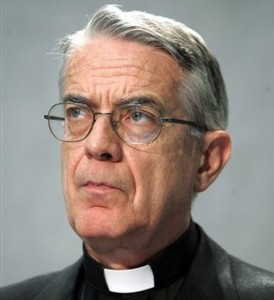The U.S. Cardinals participating in the General Congregations for the preparation of the Conclave in the Vatican, want to take more time for discussions in regard to the election of the new Pope.
“This is the most important decision that some of us will ever make, and we need to give it the time that’s necessary,” Cardinal Sean P. O’Malley of Boston told journalists on Tuesday, after the second day of the pre-conclave meeting known as the General Congregation.
“I believe the feeling of the cardinals is we want to have enough time in the General Congregation so that when we go to the Conclave itself, it’s a time of a decision,” Cardinal O’Malley said. “The General Congregation is the time of discernment, and as much time as we need for discernment in prayer, reflection and getting information, then we need to use as much time as we have.”
Difficult task
On the question of whether the abuse scandals will complicate the choice of the future Pope, O’Malley replied: “The challenge for the Church is huge, and it is obvious that this complicates the election of a new Pope”
The Vatican continued preparations for the election of a successor of Pope Benedict XVI. on Tuesday. According to the Vatican spokesman, Jesuit Father Federico Lombardi, 110 of the 115 cardinals under 80 who are eligible and expected to vote for the next Pope were present at the General Congregation March 5. The date of the beginning of the Conclave could thus be announced on Wednesday March 6.
Lombardi also told that, contrary to rumors, Cardinal Jean-Baptiste Pham Minh Man, from Ho Chi Minh City, Vietnam, was expected to arrive March 7.
It is expected that the conclave that elects the successor of Pope Benedict XVI., who resigned for reasons of age, will start next week. Thus the new Pope should be set in time for Easter.

 The conclave to choose the successor to Pope Benedict XVI. will take place 15 to 20 days after the beginning of the interregnum, after the resignation of Joseph Ratzinger on February 28. “If everything goes smoothly, it can be assumed, that the Conclave begins on the 15th of March”, the Vatican spokesman Father Federico Lombardi said on Wednesday at a press conference.
The conclave to choose the successor to Pope Benedict XVI. will take place 15 to 20 days after the beginning of the interregnum, after the resignation of Joseph Ratzinger on February 28. “If everything goes smoothly, it can be assumed, that the Conclave begins on the 15th of March”, the Vatican spokesman Father Federico Lombardi said on Wednesday at a press conference.